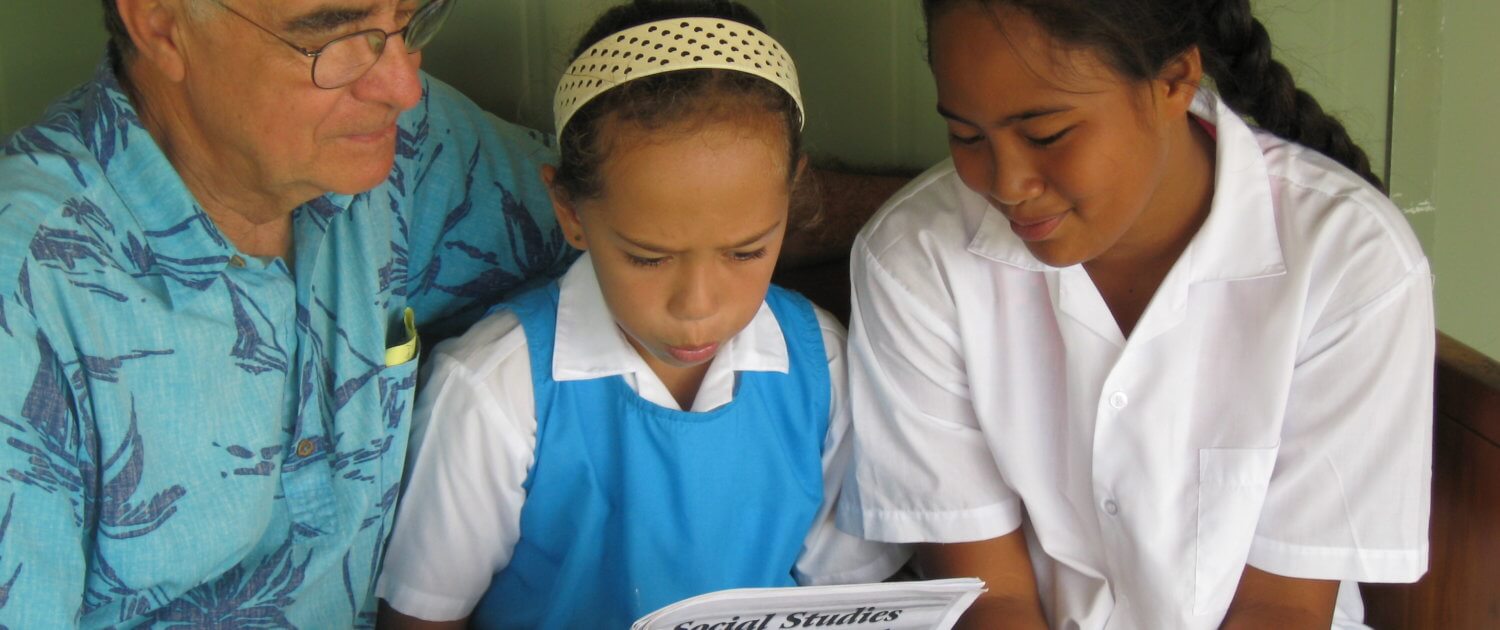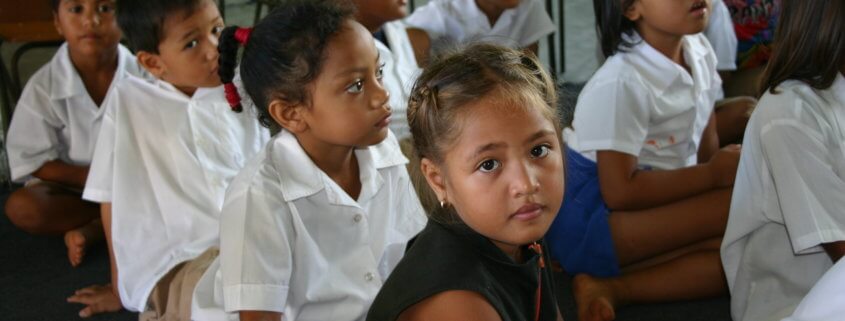COVID-19’s Toughest Blow to The Cook Islands: The Economy
Cook Islands Team Leader Sam Ellison reported to the Global Volunteers office on how the COVID-19 crisis has impacted Rarotonga, and why volunteers’ help will be an integral part of their recovery. Peru Country Manager Daniel Salazar looks into the problem further.
By Daniel Salazar
The Cook Islands has no confirmed cases of COVID-19, but that doesn’t mean it’s all good news for them. The main economic activity of the country, tourism (accounting for approximately 70% of production), is stalled. Restaurants, resorts, and other tourism activity are shut down with only New Zealand flights with supplies and medical provisions allowed. In the U.S., it would take all manufacturing, trade (retail and wholesale), services (education, social assistance, health care, finance, insurance, real state, etc.), and government spending to stop for the economy to take an equivalent hit.
When borders re-open and the dust settles a little, service efforts like the one we provide here with Global Volunteers will be an integral part of our ‘bounce back’.
James Puati, Global Volunteers Cook Islands Country Manager
The horizon seems dimmer if we consider that the Organization for Economic Cooperation and Development (OECD) graduated the Cook Islands to the category of High-Income Country, ending eligibility for Overseas Development Assistance (ODA) starting this year. This means that on average, the country has a high income relative to other countries, but it doesn’t mean that the population is well-off. According to the last official data, 30% of Rarotonga’s population could not meet basic needs for a decent standard of living – and that was when tourism was active. The OECD graduation then means that the development assistance they receive will probably drop significantly when the country needs it the most.

Thankfully, our Country Manager, James Puati, was able to deliver volunteers’ donations of school stationary before schools closed in March and volunteers were unable to travel to the island. Schools were actively pursuing home-schooling options amid the COVID-19 crisis, so those donations were gratefully received. That’s just another example of how the support of our volunteers has a positive impact on this community. But it also tells of the increased need of external support in the future. As James put it, “Looking forward (whatever that looks like?), we will require huge support. The ineligibility of the Cook Islands for ODA will have huge implications in the recovery process post COVID-19. When borders re-open and the dust settles a little, service efforts like the one we provide here with Global Volunteers will be an integral part of our ‘bounce back’.”
Indeed, one of the lessons of this crisis is that the world is really one big country, and when thinking of rebuilding our homes, we cannot forget about our neighbors in Rarotonga. Learn more about how you can help as a volunteer in the Cook Islands here.
More on The Cook Islands:




Leave a Reply
Want to join the discussion?Feel free to contribute!